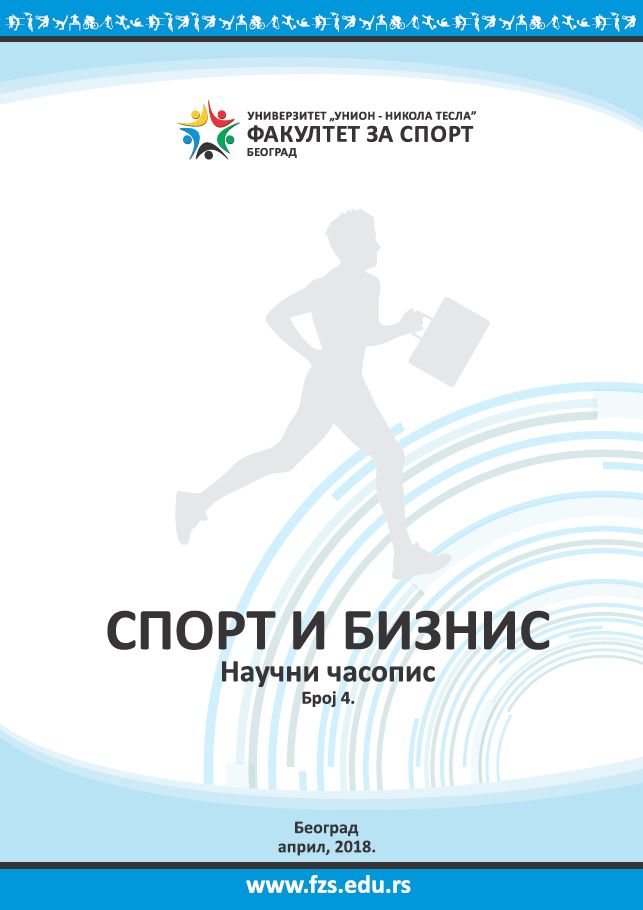SPORTS TEACHERS AND THEIR ROLE IN SPORT
SPORTS TEACHERS AND THEIR ROLE IN SPORT
Author(s): Janez VodičarSubject(s): Social Sciences, Sociology, Sports Studies
Published by: Факултет за спорт
Keywords: sports teacher and trainer; professional role; components of professional competence
Summary/Abstract: The main purpose is to describe the problems concerning the professional practice of teachers and coaches. This topic has not been a frequent subject of authors in the field of sports science. More often the problems of athletes are described. However, the development of a sports culture depends considerably on the organization and professional development of the coaching profession. The most developed countries that have a high level of sports culture development pay increasingly more attention to the problems of the professional role of a coach. Questions are being raised and dealt with regarding the social role of the coaching profession, especially the professional qualifications of coaches. The belief that a coach can be any former athlete or even sports enthusiast is being replaced by new views that regard the role of a coach as a serious professional and social problem. Coaches are responsible for the training process of athletes. Their work involves a great number of narrow expertise areas for which they must be appropriately qualified. A coach’s role is not only that of a trainer, but also of an educator, teacher, psychologist, manager, consultant, animator, technologist, masseur, physiotherapist, etc. In order to successfully perform the professional role of a coach a person must first acquire the proper education and specific professional competence in a chosen sport or form of sports activity. This fairly broad variety of professional competences calls for a substantial leap forward from the current understanding of the system of professional training. Until now many coaches were trained in training courses consisting of 75 to 300 hours, but there is an urgent requirement for coaches with an academic degree. The professional role of coaches is becoming the subject of national strategies that strive to place this profession among those that are socially regulated. Part of the effort has also been made in Slovenia by passing the Sports Act. Unfortunately, the law requires certain changes and should work more in favour of ensuring the adequate quality of the coaching profession in Slovenia. This calls for a greater contribution by those involved with higher education and the training of coaches in Slovenia. The programs of higher education institutions are still not adapted to the specific needs of the various sports and the specific characteristics of the professional practice of trainers. Moreover, not enough attention is paid to practical training and the acquisition of specific practical professional skills. Even more neglected is the area of specific professional knowledge, methods, skills, and techniques. Higher educational institutions emphasize a theoretical cognitive approach to learning, which is of course important, but mostly for scientific research work that coaches do not engage much in when practicing their profession. This is why this monograph describes the hypothetical area of the various components typically defining the professional role of a coach. Most of these components will require much more social and scientific professional attention in the future.
Journal: Спорт, медији и бизнис
- Issue Year: 4/2018
- Issue No: 1
- Page Range: 19-26
- Page Count: 8
- Language: English

